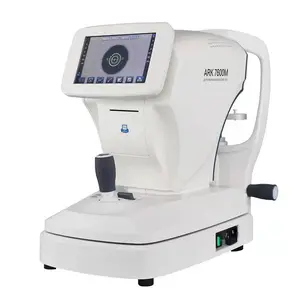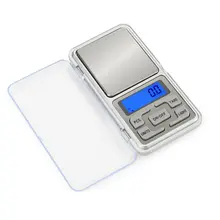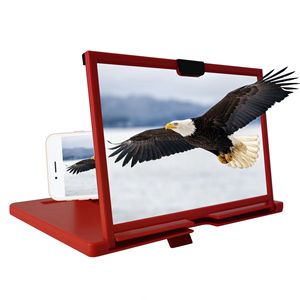What is a Magnifying Glass?
A magnifying glass is a convex lens designed to produce a magnified image of an object, allowing for clearer, larger visibility. This simple optical device is an essential tool for a variety of users ranging from avid readers and philatelists to professional scientists and investigators. The principle on which it operates is the refraction of light rays, which bend as they pass through the lens material. This bending causes the light rays to converge at a focal point, enlarging the appearance of the object when viewed through the lens.
The magnification power of a magnifying glass depends on its curvature and the material from which it is made; the more curved the lens, the closer its focal length, and hence a greater magnification can be achieved. These instruments are invaluable for people with low vision, as they can significantly improve reading ability and daily functioning. Likewise, they are fundamental in various trades and scientific fields for inspecting small details that are difficult or impossible to see with the naked eye.
Understanding how to use a magnifying glass properly is also key to harnessing its capabilities. Holding it at the correct distance between the object and one's eye allows light to focus correctly and provides a sharp, enlarged image. With advancements in design, many magnifying glasses now come with built-in illumination to enhance visibility in low-light conditions or to highlight intricate details.
Types of Magnifying Glass
The market offers an array of magnifying glasses, each tailored for specific applications and user preferences.
Handheld Magnifying Glass: These are the most common type, featuring a handle attached to a single convex lens. They are portable and easy to use for everyday tasks like reading small print or examining jewelry.
Stand Magnifiers: Ideal for hands-free operation, stand magnifiers rest on a surface. They are often used by individuals who need consistent magnification over longer periods, such as in detailed craftwork or electronic repair.
Jeweler's Loupe: A small, portable magnifier without a handle that folds into a protective case. Jewelers commonly use this type for close inspection of gems, watches, and fine details.
Illuminated Magnifiers: These come with built-in lighting, typically LED, enhancing visibility in poorly lit areas. They are especially helpful for intricate tasks such as circuit board inspections or document analysis.
Bar Magnifiers: Shaped like a flat bar or ruler, these are laid directly on the reading material and slid down as one reads. They are excellent for those who need assistance with reading lines of text.
How to Choose Magnifying Glass
Selecting the right magnifying glass requires considering its intended use, material quality, and additional features that may enhance functionality.
When choosing a magnifying glass for business purposes, identify the specific tasks it needs to perform. For example, if precision in examining tiny components is crucial, opt for high-magnification jeweler's loupes or illuminated magnifiers. For general office work or reading documents, handheld or stand magnifiers may suffice.
Material quality is paramount; lenses made from optical glass or acrylic offer clearer images without distortion compared to those made from less refined materials. Additionally, robust materials like metal or brass frames provide durability for frequent use in professional settings.
Customization options such as OEM support may be important for businesses seeking branded equipment. Color selection might align with corporate branding or user preference. In terms of application, consider whether the magnifying glass will be used in repair workstations, beauty salons, educational settings, or other environments to ensure it meets functional requirements.
Light source integration is another consideration; models with LED lights can be beneficial in low-light conditions or when working with intricate details. Features such as portability, foldability, and eye protection should also be taken into account based on how and where the device will be used most frequently.
Best Magnifying Glass on Alibaba.com
Alibaba.com presents an expansive collection of magnifying glasses suitable for commercial usage or resale by businesses worldwide. With over two decades of experience facilitating global trade solutions, Alibaba.com has established itself as an all-encompassing platform connecting suppliers with buyers efficiently and securely.
The extensive range of magnifying glasses available through Alibaba.com features products made from high-quality materials such as optical glass and durable metals. From practical handheld models suitable for quick inspections to specialized jeweler's loupes offering precision viewing—each product is showcased with comprehensive specifications to aid buyers in making informed purchasing decisions.
Buying on Alibaba.com provides businesses access to customizable options that cater to their unique needs—whether seeking OEM services for branded equipment or specific color choices to match company aesthetics. Moreover, Alibaba.com's Trade Assurance service ensures that payments are protected until delivery completion, giving buyers confidence and peace of mind throughout their purchasing journey. With user-friendly mobile access and local language communication tools available on the site, Alibaba.com stands out as the go-to marketplace for sourcing quality optical instruments like magnifying glasses that fit various professional applications.
Common FAQs for Magnifying Glasses
What are the main materials used in high-quality magnifying glasses?
High-quality magnifying glasses are typically made from optical glass or acrylic for the lens, and materials like aluminum, brass, or ABS plastic for the frame and handle, providing clarity and durability.
How does lens curvature affect magnification power?
The curvature of a lens affects its focal length; a more curved lens has a shorter focal length, leading to higher magnification power and making objects appear larger when viewed through the magnifier.
Are there magnifying glasses with integrated lighting?
Yes, many magnifying glasses come with integrated LED lights to provide illumination for enhanced visibility, particularly useful in low-light conditions or when examining intricate details.
Can I get customized magnifying glasses for my business?
Customized support is available for businesses that require OEM or ODM services, allowing for personalized branding and features tailored to specific professional needs.
What types of magnifying glasses are best suited for repair work?
For repair work, especially with small components, illuminated magnifiers or jeweler's loupes with high magnification are ideal to provide clear and detailed views of the items being repaired.
Are there portable options for magnifying glasses suitable for fieldwork?
Yes, portable options such as folding jeweler's loupes and compact handheld magnifiers are available for professionals who require magnification tools during fieldwork.
What is the significance of a magnifying glass's shape and structure in its function?
The shape and structure of a magnifying glass, such as round or aspheric lenses and plano-convex configurations, influence its focusing properties and can reduce image distortion for specific tasks.
How do I choose a magnifying glass based on its application environment?
Consider the environment where the magnifying glass will be used—whether it's for optical equipment, educational purposes, or beauty salons—to ensure it meets the functional requirements and withstands the setting's demands.
What features should I look for in a magnifying glass intended for educational use?
For educational use, look for features like durability, ease of handling, and possibly foldability or adjustability to accommodate various users and learning activities.
Are bar magnifiers a good choice for reading purposes in professional settings?
Bar magnifiers are an excellent choice for reading lines of text in professional settings as they can lay flat on the page and be easily slid down to follow along without straining the eyes.
How does surface quality impact the performance of a magnifying glass?
Surface quality ratings such as 60/40 or 40/20 indicate the precision of the lens finish; a higher surface quality results in less distortion and clearer images.
Is there a difference in functionality between convex and double-convex lenses in magnifiers?
Convex lenses have one outward-curved surface and are used for general-purpose magnification. Double-convex lenses have two outward-curved surfaces, providing higher levels of magnification suitable for detailed inspection tasks.
































 浙公网安备 33010002000092号
浙公网安备 33010002000092号 浙B2-20120091-4
浙B2-20120091-4